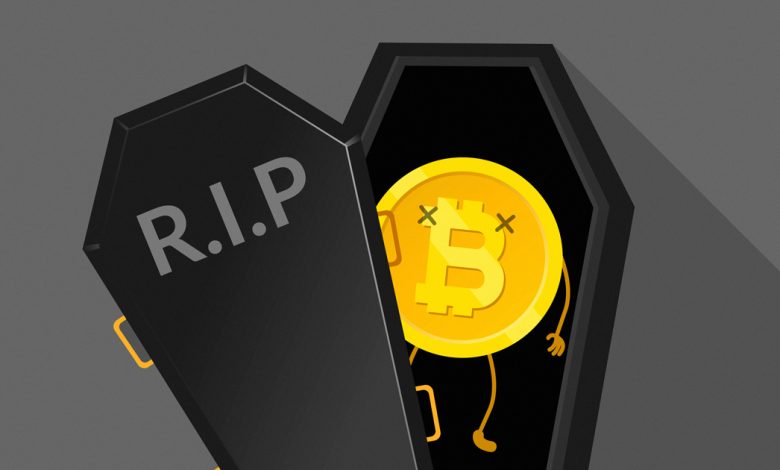Is Crypto Really Dead? Should Kenyans Stop Investing In It?

Bitcoin, the original cryptocurrency, the gold standard for all things crypto, crashed last week.
Bitcoin prices fell a whopping 75% in the last year, or down to a fourth of its value. This, for something touted to be a better store of value than gold, US dollars or any other fiat currency or precious metal is kinda heartbreaking.
This brings us to our question, is Bitcoin really dead this time round?
READ MORE: How To Keep Your Crypto Safe By Moving It Offline

FYI: Bitcoin has been declared dead 465+ times from 2010.
Other cryptocurrencies have done worse. Many are down 80-90% in a year, some completely wiped out. Most investors in crypto are now sitting on losses.
FTX, one of the big crypto exchanges, where people come to trade and store their cryptocurrencies, also collapsed last week. This was due to massive alleged irregularities, including customer deposits being inappropriately used to buy and prop up the company’s own issued cryptocurrency, the FTT token.

So does this mean that crypto will now die? Not necessarily. But in the short term, many mainstream investors and institutions will probably run away, unless there is sweeping regulatory reform. For the FTX implosion has revealed that the sector has at least two big Achilles heels.
One is that it is fiendishly difficult to know what assets underpin digital tokens (other than blind faith), since balance sheets are often opaque. FTX and Alameda used to be considered well capitalised. But last week a report suggested that their balance sheets were padded by massive holdings of a digital token called FTT, which none other than FTX itself had issued.
In theory, these problems could be fixed if crypto were forced to adopt the same regulatory tenets around custody and transparency as fuddy-duddy fiat-based finance. If so, mainstream investors might stay involved. bipartisan congressional bills are already floating that try to do just that.
But these have not been implemented yet, amid political gridlock. And, in practice, crypto players’ attitudes towards regulation is — at best — mixed.
Take Binance. This week CZ announced a flurry of transparency initiatives, and criticised FTX for using its own token as collateral and lending without proper reserves.
READ MORE: Simple Ways You Can Remain Rich After Making Money

But Binance mostly operates offshore, and CZ says he dumped FTT tokens because “we won’t support people who lobby against other industry players” — presumably with regulators. Welcome to another crazy plot twist that will (rightly) scare institutional investors.
READ MORE: Managing Your NSE Investments In A Bear Market- Don’t lose Your Head, or Money
Thus the crypto future could be bifurcated: one sphere of shady, offshore activity and another of sober, tightly controlled central bank experiments.
This is certainly not what the libertarians who first launched the crypto dream ever expected. But it seems the most likely bet — unless there is badly needed regulatory reform. Either way, prepare for more twists.






